The Chicks have dropped the Dixie from their title: check out other famous artist name switches
The Chicks dropped the Dixie from the title but they aren’t the first – or the last – artists to undergo rebranding.
Hibernation
Don't miss out on the headlines from Hibernation. Followed categories will be added to My News.
“We want to meet this moment.”
The enigmatic one-liner appeared when American country music superstars Dixie Chicks dropped their new single March March last week. And also dropped the Dixie from their moniker.
The majority of fans and the wider music industry have referenced the trio by the shortened The Chicks for much of their three-decade career.
But Natalie Maines, Martie Maguire and Emily Strayer decided to make it official in the wake of criticism over the use of Dixie as America reckons with social justice movements protesting racial inequality.
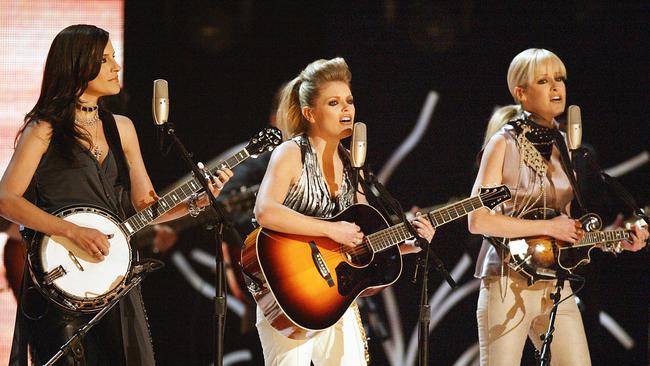
MORE NEWS
Rufus shares the love on new album
Jimmy Barnes taps famous nephew for help
Daryl Braithwaite’s shock song confession
Dixie is linked to the Mason-Dixon line, which became known as the border between the free Northern states and Southern slavery states in the 19th century and is still referenced as a figurative political and social division of America.
The new single March March is an unequivocal protest song as evidenced by the lyrics and video, which is a collage of images of current and historical movements for women’s rights, gay rights, environmental causes and Black Lives Matter.
It’s a big deal for any band to change names, even with the most noble of intentions, but when you are a country pop trio with sales of more than 30 million albums under your belt, the stakes are high.
The name change comes as they continue their musical protests with new record Gaslighter, out on July 17.
But before they could reveal the new name to the world, they also had to sort out the fact it already belonged to a 1960s pop duo from New Zealand.
“A sincere and heartfelt thank you goes out to ‘The Chicks’ of NZ for their gracious gesture in allowing us to share their name. We are honoured to coexist together in the world with these exceptionally talented sisters. Chicks Rock!” the American trio said in a press statement.
The most famous band name changes widely known include The Beatles (formerly the Quarrymen) and Beach Boys (originally The Pendletons).
Here’s a waltz down the nostalgic road of some weird and wonderful artist name switches over the decades:
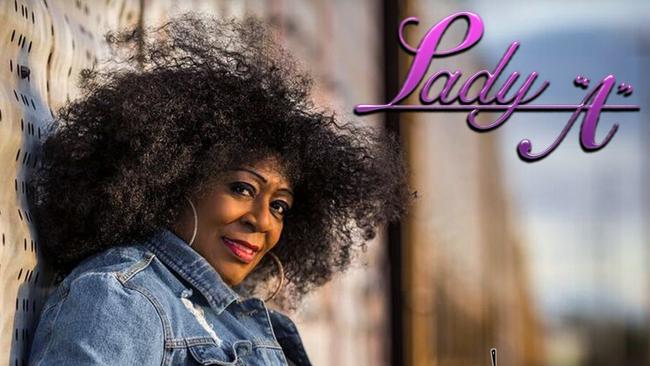
Lady A
Another recent rebranding of an American chart-topping country act as artists in the US navigate the historical and social implications of a name.
But this one got botched from the beginning when Grammy-winning group Lady Antebellum announced last month they had decided to call themselves Lady A.
“Our hearts have been stirred with conviction, our eyes opened wide to the injustices, inequality and biases black women and men have always faced and continue to face everyday,” they said in a statement announcing their new name.
Antebellum also has links to America’s slavery era, referring to the period and architecture in the US South before the Civil War.
But less than 24 hours after their big reveal, the trio were alerted that the name already belonged to a 61-year-old blues singer Anita White, who has recorded and performed as Lady A for more than 20 years.

She protested the lack of respect – perhaps a google search of Lady A before they announced the name change may have been wise – and pointed out the irony they had appropriated the moniker of a black artist while trying to make a point about inequality.
Hillary Scott, Charles Kelley and Dave Haywood got in touch with Lady A to apologise for the stuff-up and “transparent, honest, and authentic conversations were had”.
Those conversations – and perhaps a generous cheque – resulted in both parties agreeing to continue to use the Lady A name.
Pearl Jam
The grunge rock lords played their initial shows under the name Mookie Blaylock, in tribute to a New Jersey Nets basketballer whose player card happened to get stuck in the cassette tape case of one of their early demos.
“It was kind of goofy,” admitted Eddie Vedder.
“But that first week we were too busy working on songs to think about a name.”
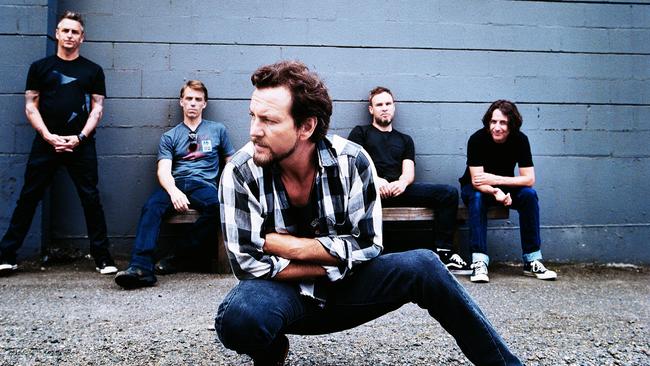
As labels started to circle the band and their fanbase grew in the burgeoning Seattle rock scene, they realised they had to switch titles because they would be forever confused with the popular point guard and using the name on T-shirts would become problematic because of trademark laws.
There’s been much speculation about the origins of Pearl Jam but the band claim it was inspired by the name of Vedder’s grandmother and the random suggestion of adding “jam” after witnessing Neil Young and Crazy Horse jam out 15-minute versions of their songs at a gig.
Prince
For several years in the 1990s, Prince went to war with Warner Bros over a long-running contract dispute and control of his back catalogue.
In an attempt to seize back his “name”, he changed it to the glyph that was a stylised combination of the male and female symbols.
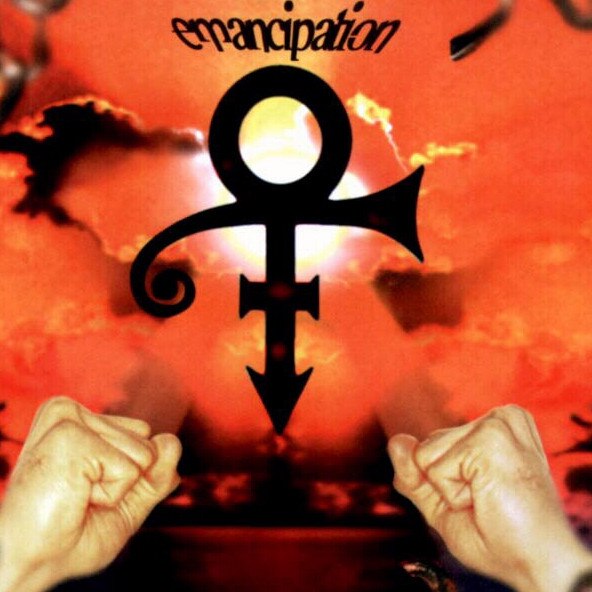
The label had to send out floppy discs (the original USB) with the Love symbol so it could be used in newspaper and magazine stories and reviews referencing his works, but most media adopted the unwieldy The Artist Formerly Known As Prince or short form The Artist.
Rufus Du Sol
The alt-dance heroes became adored on the Australian festival circuit as RUFUS, but as their popularity spread further afield to the US they found themselves in the middle of a trademark dispute.
They added the two syllables to appease the legal eagles – Chaka Khan fronted the Chicago funk band Rufus in the 70s – and adopted it worldwide as their official name before the release of their album in 2018.

Cub Sport
The Brisvegas indie pop band released their initial singles as Cub Scouts. You know where this is going.
After having the proverbial scared out of them when a cease-and-desist order lobbed from Scouts Australia because of the clash with their registered trademark, the good sports quickly adopted a name change.
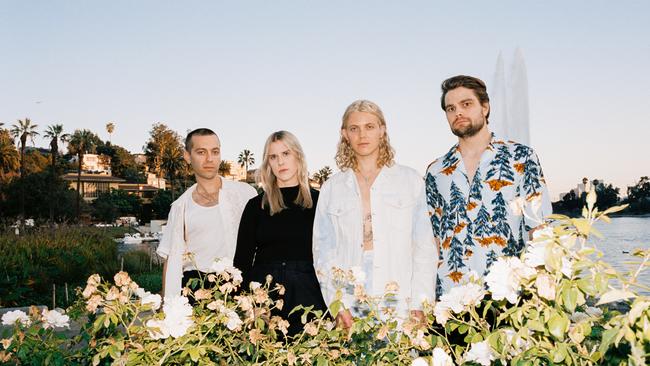
Shihad
It’s a common affliction suffered by Antipodean bands signed by an American label who promise to make them superstars – if you change your name.
The New Zealand band switched to Pacifier from 2001 to 2004 because their US overlords were concerned Shihad sounded too similar to jihad and there was a lot of war going on.
Other artists who had to adopt new names in America because of trademark or aesthetic issues included The Angels (Angel City), Sherbet (Highway, Sherbs) and Crowded House (originally known as The Mullanes but the American label wasn’t having it).
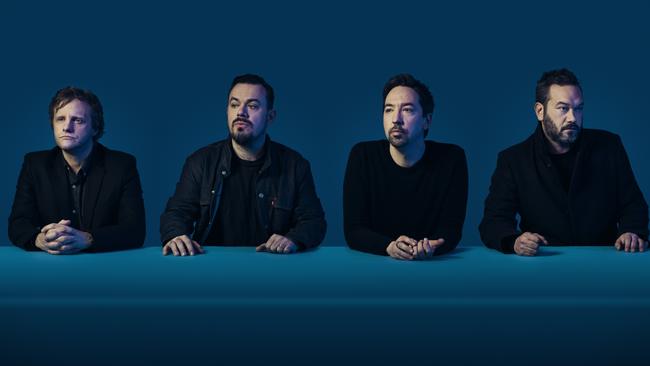
Originally published as The Chicks have dropped the Dixie from their title: check out other famous artist name switches
